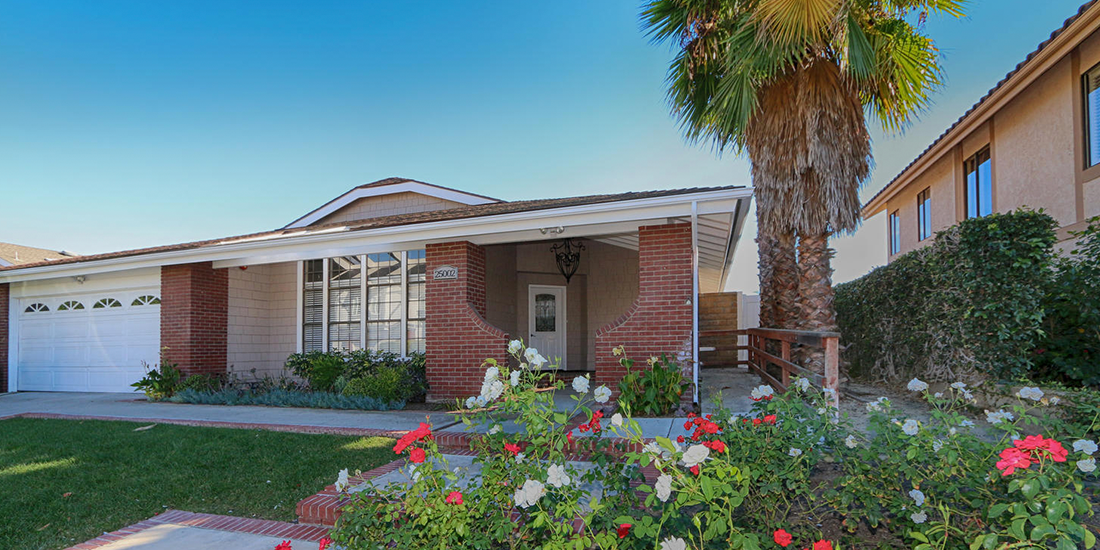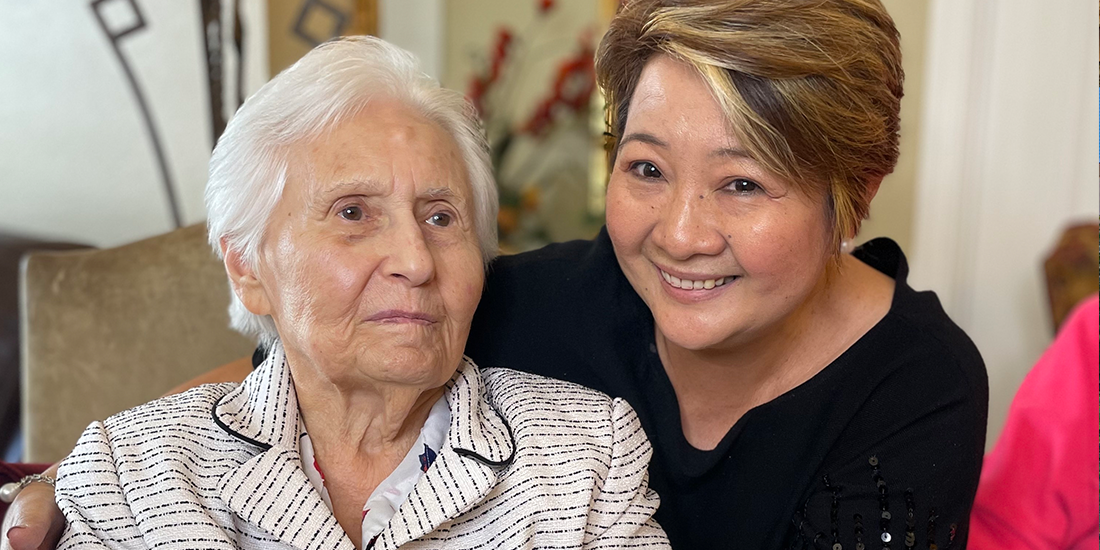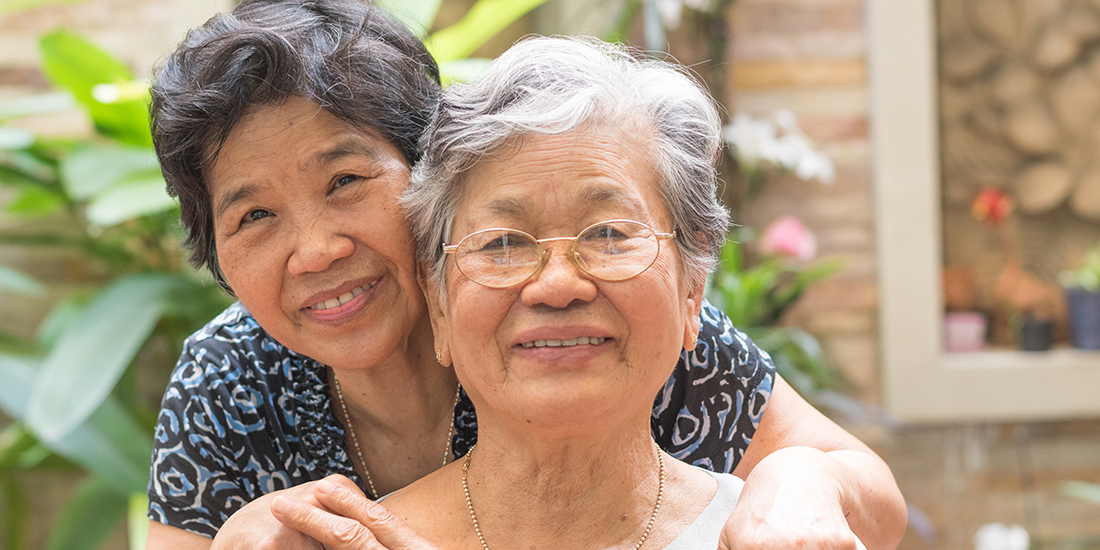
Inside Assisted Living Facilities: What They Are and How They’re Different
January 28, 2022
How to Recover From Caregiver Burnout: 5 Tips to Reduce Stress
March 29, 2022Director Series 2: Residential Care with Arda Kardjian
About the Director Series
The Director Series— a Parentis Health Learning Center exclusive—connects you with our leadership team in a whole new way. This article dives into Parentis Health’s Residential Care.
This series helps highlight what each service offers, how it can help patients and families, and how to keep costs under control without compromise.
Safety and transparency with Parentis Health and Verona Court Co-founder, Arda Kardjian
A quick overview of today’s healthcare landscape can be alarming. Modern concerns include staffing shortages, the impact of Covid-19 on patients and healthcare workers. Plus, concerns remain about inadequate onsite medical personnel and patient safety.
We sat down with Parentis Health, Parentis Foundation and Verona Court co-founder, Arda Kardjian, RN, BSN to address these concerns.
In this special report, we’ll be examining:
- How Verona Court has been impacted during the pandemic.
- Why Verona Court is less susceptible to staffing shortages.
- Verona Court’s access to better access to onsite medical personnel than other facilities.
- The facility’s remarkable patient safety record and how it contributes to outstanding residential care.
Verona Court and covid-19

The impact of Covid-19 has been felt across all industries. Healthcare is among the most adversely impacted since the early days of the pandemic. From hospitals to assisted living facilities, the pandemic has seriously impacted healthcare workers. There have been over 50,350 cases amongst healthcare workers in Los Angeles County alone since May 2020—with little signs of slowing.
And, with nearly 30,000 assisted living facilities (ALFs) in the United States, Covid-19’s impact has been particularly hard on the nation’s aging population and those who care for them.
The phrase “Assisted living facility,” unfortunately, doesn’t accurately portray the type of facility. Nor does it reflect the level of risk assumed by patients and caretakers who live and work in them.
Verona Court is a type of assisted living facility known as a Residential Care Facility for the Elderly (RCFE), a custodial care facility that houses a maximum of six residents, ensuring a 3:1 caregiver-to-resident ratio. To learn more about assisted living facilities, please see “Inside Assisted Living Facilities: What They Are and How They’re Different.”
With 13 homes in Southern California’s South Orange County region, Verona Court offers residents a unique environment. We provide personalized, comprehensive care in an intimate, warm setting that affords them all of the comforts of home. Our goal is remarkable residential care for your loved ones.
Verona Court prepared long before the Covid-19 pandemic. Our facility has the appropriate policies and procedures in place to address staffing shortages and spread of covid-19.
As Arda Kardjian explains, “We’re a custodial environment capped at 6 residents. So we didn’t really experience the same challenges as larger facilities, like staffing shortages or outbreaks.”
Residential care advantages
One of the hallmarks of RCFEs is their 3:1 caregiver-to-resident ratio. The small size of RCFE homes is key to providing a high level of personalized care. This is much more than what larger assisted living facilities and nursing homes can offer.
As the pandemic progressed, Kardjian made the decision to close two Verona Court homes temporarily. Instead, the homes were dedicated quarantine and recovery spaces for residents and staff as needed.
“We had 11 homes operating as normal throughout 2020, fully staffed and secure. Our staff was safe, our residents were safe, and we had two homes reserved just for quarantine and recovery. We took all necessary precautions and facilitated regular family visits virtually, following strict California Department of Health and CDC guidelines…and when those changed, we changed along with them. We started with outdoor family visits, followed by in-person visits with everyone masked indoors,” Kardjian elaborates.
“Exposure was a legitimate possible challenge,” Kardjian offers, “But having two homes intentionally available for quarantine purposes made it possible to care for our residents and our staff without any concerns—or any extra cost to them.”
Caring for caregivers
Caregivers aren’t always this fortunate. They are often affected by the costs of recovery, from lost work hours to out-of-pocket expenses.1 But Kardjian—an RN with decades of hospital and bedside experience—and Julie Gorordo, LVN, Verona Court’s Administrator and Care Manager, personally supervised staff and patients during recovery.
“Administrators rarely have nursing backgrounds, and a surprising number of RCFE owners don’t either,” Kardjian explains. “We’re pretty unique in that respect because we can advocate for our residents from a medical perspective. We also know exactly how to effectively communicate with their doctors and nurses, so we can ensure our residents get the best possible care.”
As a result of 40 years of nursing experience, Kardjian has developed long standing relationships with doctors and critical care centers throughout Orange County. This has allowed Kardijan to maintain an exemplary level of residential care, for both in-person and virtual care.
Gorordo is always present on virtual visits with physicians to ensure effective communication, advocate for residents, and maintain the highest possible standard of care. Additionally, Kardjian and Gorordo spend ample time with Verona Court residents regularly, from personal check-ins to sharing meals and providing companionship.
Addressing industry fragmentation
“As an industry, healthcare is very fragmented…one care facility may have to utilize multiple third-party providers for extra services, whether it’s home care, home health, hospice or transportation. With Parentis Health’s coordinated care services, we’re able to offer everything residents would get through multiple providers from a single source,” Kardjian explains.
See what families say about having their loved ones in the Verona Court facilities.
Parentis Health, by providing all of the necessary services as a single source, effectively closes the gap of fragmentation in care. This makes the entire care journey easier for both residents and families. However, Verona Court residents are always free to choose and receive healthcare services from any organization.
Putting patient safety first
Since the first Verona Court home opened its doors in 2004, the safety of its residents and staff has been of utmost importance. Everything about Verona Court, from the upscale neighborhoods the homes are located in to the hands-on supervision of its founder and administrator, benefits those who reside in and work at each facility.
Kardjian and Gorordo personally oversee each home—the homes are all within easy driving distance of each other, facilitating daily onsite visits—ensuring that everything is in its right place, day in and day out.
Going above and beyond in residential care
Kardjian and Gorordo’s dedication has paid off greatly, starting with Verona Court’s reputation with the California Department of Social Services (CDSS), the Community Care Licensing Division (CCLD), the state’s regulatory enforcement agencies who oversee California’s 8100+ RFCEs.
As Kardjian elaborates, “CDSS, CCLD and state inspectors know that Verona Court is exemplary, based on years of working with us. We’ve received a clean record, one of multiple requirements for maintaining licensure under the CDSS2 for 17 consecutive years, as well as six Facility Hospice Care Waivers in every home.”
Having six Facility Hospice Care Waivers in each home is a very unique and significant achievement. The waivers—issued by CCLD—specify the number of terminally ill patients an RCFE can receive at once.3 “Most RFCEs have 3-4 waivers, tops…having six waivers in every one of our homes reflects the quality of care we provide,” Kardjian adds.
Going above and beyond is a Verona Court standard; we even have active duty firefights conduct the mandatory evacuation and fire safety training.
Superior staff support and retention rates

In April 2021 alone, over 4M people left their jobs. While resignations impacted every aspect of the labor sector, hospitality, retail, entertainment and healthcare had the highest resignation hit.
Since May 2020, nearly a third of the nation’s nursing homes reported shortages in nurses or nursing aides, the industry’s highest shortages on record. Staffing shortages throughout the eldercare niche have continued on throughout the pandemic.
However, the Verona Court facility experienced zero staffing shortages throughout the pandemic, even during the biggest surges in 2020 and 2021.
Operational excellence in residential care
As Kardjian elaborates, “Closing two homes early into the pandemic gave us a way to care for staff members and patients. And so we kept 11 homes operating smoothly. We invested more in our caregivers in order to preserve the quality of care we’re known for.”
Verona Court always supports its staff; which in turn results in extremely high staff retention rates. On average,Verona Court staff members stay with the company for up to 11 years; some, like Julie Gorodo, come back to take on even greater responsibilities.
Gorodo started her career as a caregiver with Verona Court while she was pursuing her nursing education. After receiving her LVN certification, Gorodo worked in much larger facilities, including 300+ bed nursing homes. She eventually returned to Verona Court with even a greater appreciation for the company.
Continuous training and strict medication protocols
As a state-licensed RCFE, Verona Court is required to regularly train staff, including quarterly caregiver training and biannual administrative continuing education. Per state requirements, all staff members are fingerprinted and registered. This drives greater transparency across the entire organization from the top down.
To ensure optimal medication safety, Verona Court’s executive leadership meticulously monitors the storage, handling and distribution of medications. “We have strict protocols regarding medications at every Verona Court home. We lock away our medications, and we tightly control dispensing,” Kardjian volunteers. “Our medically-trained administrator supervises medication safety procedures and personally visits each home, usually every day.”
Everyday transparency

Transparency is a standard at Verona Court. As Kardjian explains, “We handle all care management with full transparency, and families can contact us for any reason anytime.”
During the height of the pandemic, residents, staff and families stayed connected via platforms like Zoom, FaceTime and Skype. As the pandemic landscape shifted, Verona Court’s staff worked tirelessly to preserve in-person visitations.
Keeping families connected
“We always encourage families to come and visit their loved ones, no matter what. Even when the pandemic was at its worst, we accommodated in-person visits using the most up-to-date CDC protocols,” Kardjian elaborates.
Verona Court and the care team offers its residents more than just a place to live. It ensures residents are cared for no matter what with consistent and effective communication, up-to-date policies and procedures, and contingency plans in place to maintain a peace of mind at all times—even when the unexpected happens. To learn more about Verona Court—and look inside its different homes throughout South Orange County, California—please visit www.veronacourt.com. The Parentis Health Learning Center is a trusted source for information, developed by our team of healthcare experts and created to inform and help guide patients and families on their healthcare journey.
1https://www.calregistry.com/residential-care-homes-for-seniors/#:~:text=In%20California%2C%20there%20are%20today,facility%20including%20a%20nursing%20home, accessed 1/25/22.
2https://www.cdss.ca.gov/ord/entres/getinfo/pdf/rcfeman2.pdf, accessed 1/21/22.
3https://alfboss.com/hospice-care-waiver-ca/, 1/21/22.

